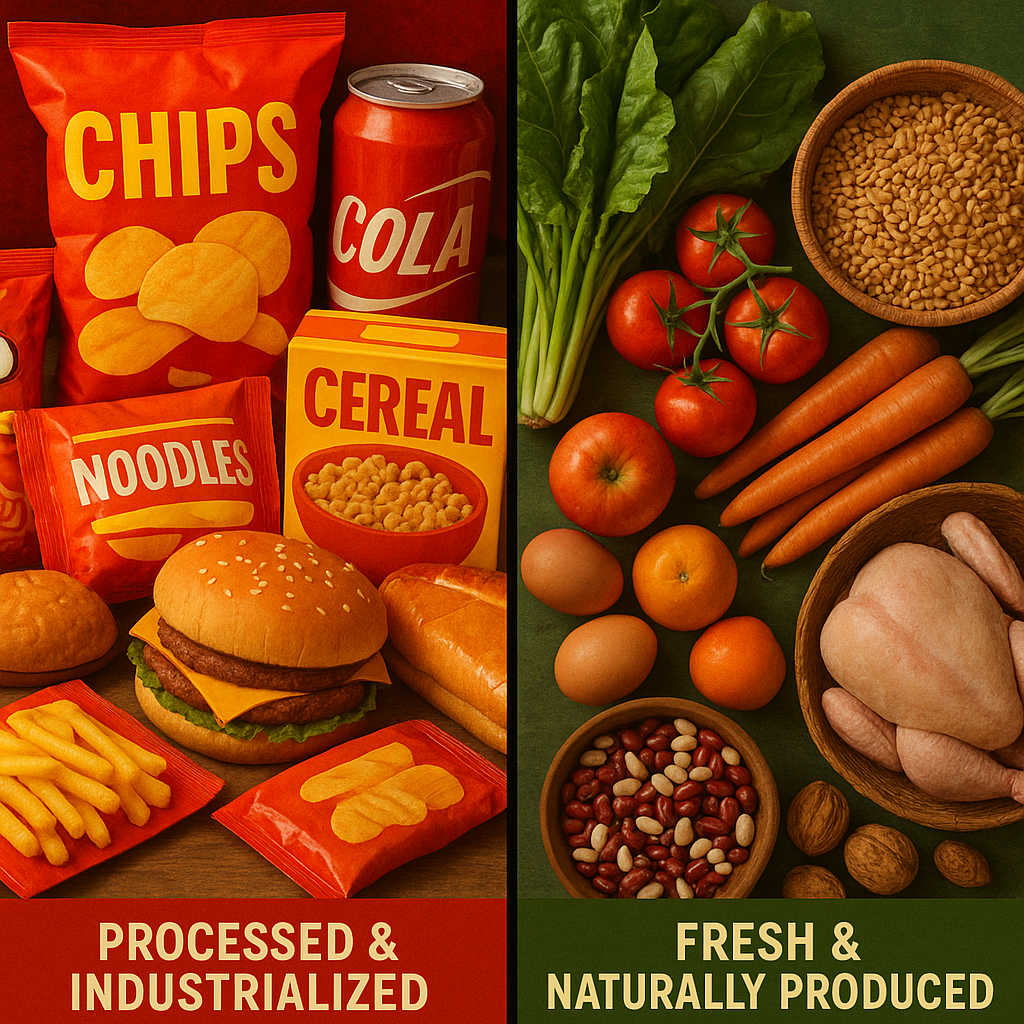
How High-Quality Nutritional Supplements Can Correct Deficiencies from Poor Diets and the Industrialized American Food Chain
Share
Understanding the Challenge: Modern Diets and Food Systems
The typical American diet today often falls short of delivering the essential nutrients our bodies need. Busy lifestyles drive many to choose fast food, processed meals, and convenience snacks, which are typically high in calories but low in vitamins, minerals, and other vital nutrients. Compounding this, the industrialized food chain—characterized by large-scale agriculture, food processing, and long supply chains—often produces food with diminished nutritional value compared to whole, minimally processed foods.
Why Do Nutritional Deficiencies Occur?
There are two primary culprits:
· Poor Dietary Habits:
o High intake of sugar, refined grains, and unhealthy fats
o Low consumption of fruits, vegetables, whole grains, and lean proteins
· Food System Shortcomings:
o Soil depletion leads to crops with fewer nutrients
o Processing and storage methods that strip foods of vitamins, minerals, essential nutrients
o Transportation and shelf time reduce nutrient content further
The Role of High-Quality Nutritional Supplements
Nutritional supplements are designed to fill the gaps left by suboptimal diets and declining food quality. High-quality supplements are manufactured under strict standards, ensuring consistent potency, purity, and bioavailability (the ability of your body to absorb and use nutrients effectively).
How Supplements Help Correct Deficiencies
· Filling Gaps Left by Diet
Supplements provide essential nutrients—like vitamin D, iron, calcium, vitamin B12, magnesium, omega-3 fatty acids, antioxidants, natural phenolic compounds, and fiber that are often lacking in modern diets.
· Counteracting Nutrient Loss in Food Production
Advanced formulas of nutritional supplements can restore nutrients lost during the processing and storage of industrial foods.
· Supporting Health Goals
Tailored supplements target specific needs (e.g., immunity, bone health, energy, cognitive function, thyroid function, insulin resistance, fertility preservation, cancer prevention and chronic disease prevention) that are hard to meet with diet alone.
Common Deficiencies in the U.S. and Supplement Solutions
|
Nutrient |
Risk Group |
Supplement Benefit |
|
Vitamin D |
Most Americans |
Supports bones, immunity, brain, heart and kidney |
|
Magnesium |
Adults, elderly, pregnancy |
Aids muscles, nerves, energy |
|
Iron |
Women, children |
Prevents anemia, supports growth |
|
Omega-3 Fatty Acids |
All groups |
Heart and brain health |
|
Vitamin B12 |
Vegetarians, seniors, pregnancy |
Supports nerves, red blood cells |
|
Calcium |
Seniors, women, pregnancy |
Supports bone health |
|
Antioxidants |
Women, men, all adults |
Support general health, reduce oxidative stress |
|
Chelating agents |
All (children and adults) |
Detoxify the body from heavy metals and environmental toxins |
What Makes a Supplement "High-Quality"?
· Rigorous Testing for Potency and Purity
· Best Manufacturing Practices
· Transparent Labeling and Sourcing from vetted and reputable suppliers
· High Bioavailability Formulas
· Minimal Use of Fillers, Artificial Colors, and Additives
Practical Tips for Choosing and Using Supplements
· Look for third-party certifications (like NSF International, USP, or ConsumerLab)
· Check for appropriate dosages based on scientific studies
· Consult a healthcare professional, especially if you have health conditions or take medications
· Receiving a customized protocol from your doctor to address your unique issues is important
· Remember: supplements should complement, not replace, a balanced diet and a healthy lifestyle
Final Thoughts
While improving dietary habits and advocating for a healthier food system remain essential, high-quality nutritional supplements offer a practical solution to address the nutrient gaps created by modern living and the realities of America’s industrialized food supply. By choosing reputable products and integrating them wisely into your daily routine, you can support overall health and resilience in a world where achieving ideal nutrition can be increasingly challenging with food alone.
When it comes to your pregnancy, the benefits of nutritional supplements during pregnancy are profound, which can help your unborn child develop into a healthy child and adult. Poor nutrition during pregnancy promotes negative epigenetic changes in the fetal DNA that will affect the unborn for their entire adult life. Negative nutritional changes in fetal DNA are linked to chronic diseases and increased mortality.
